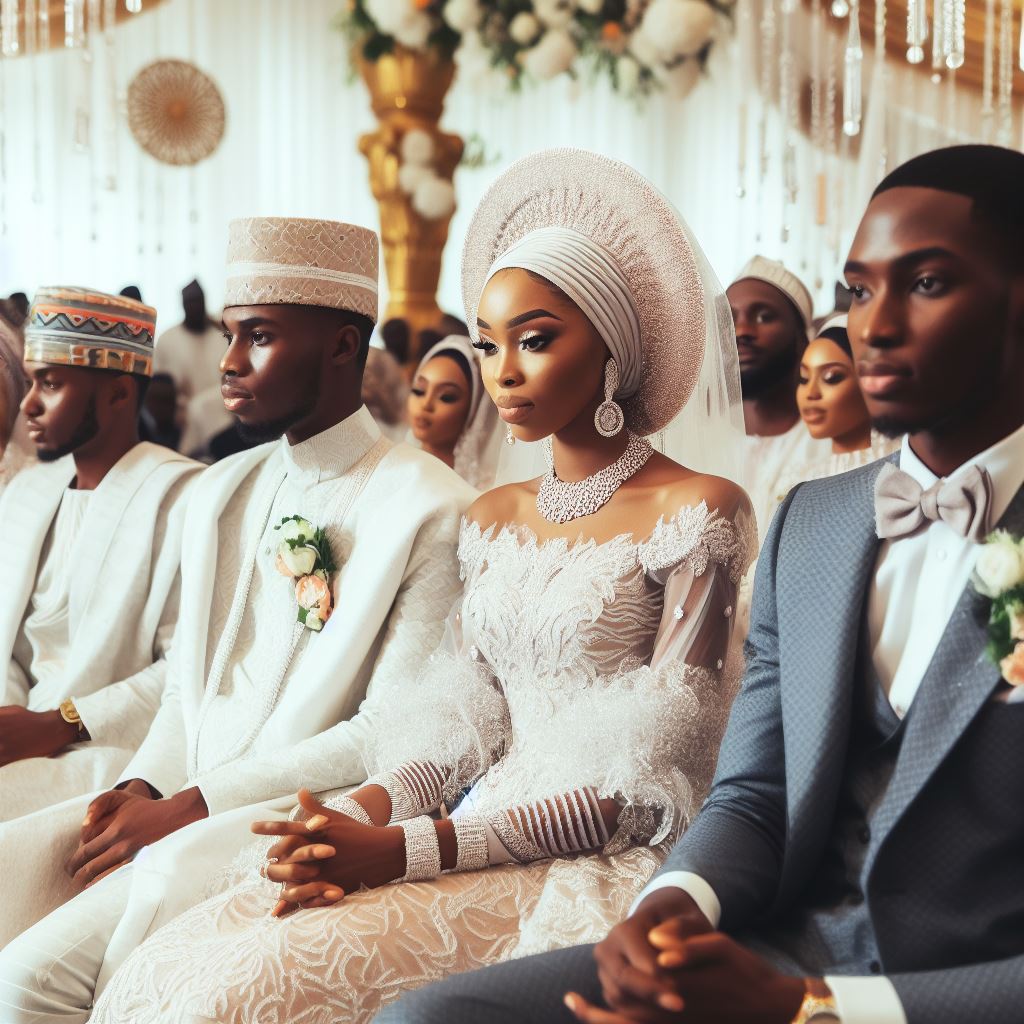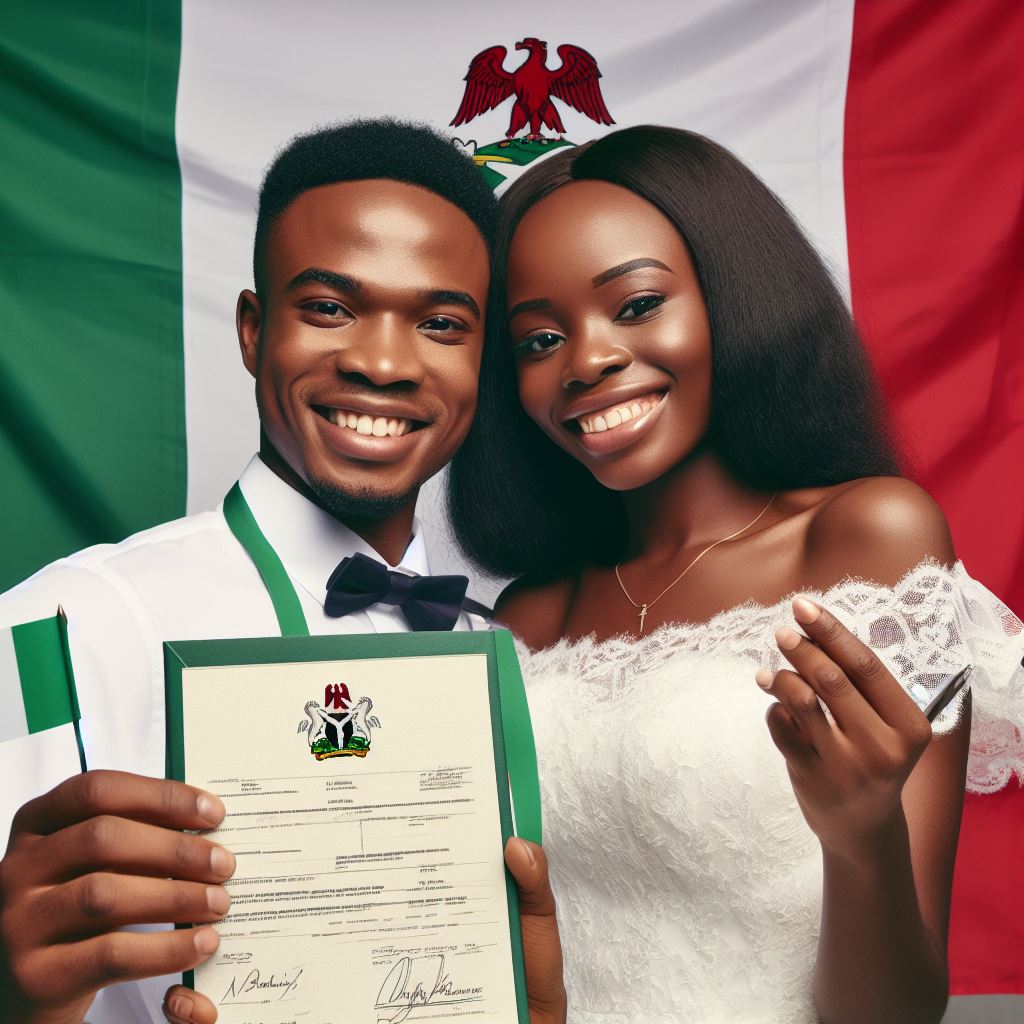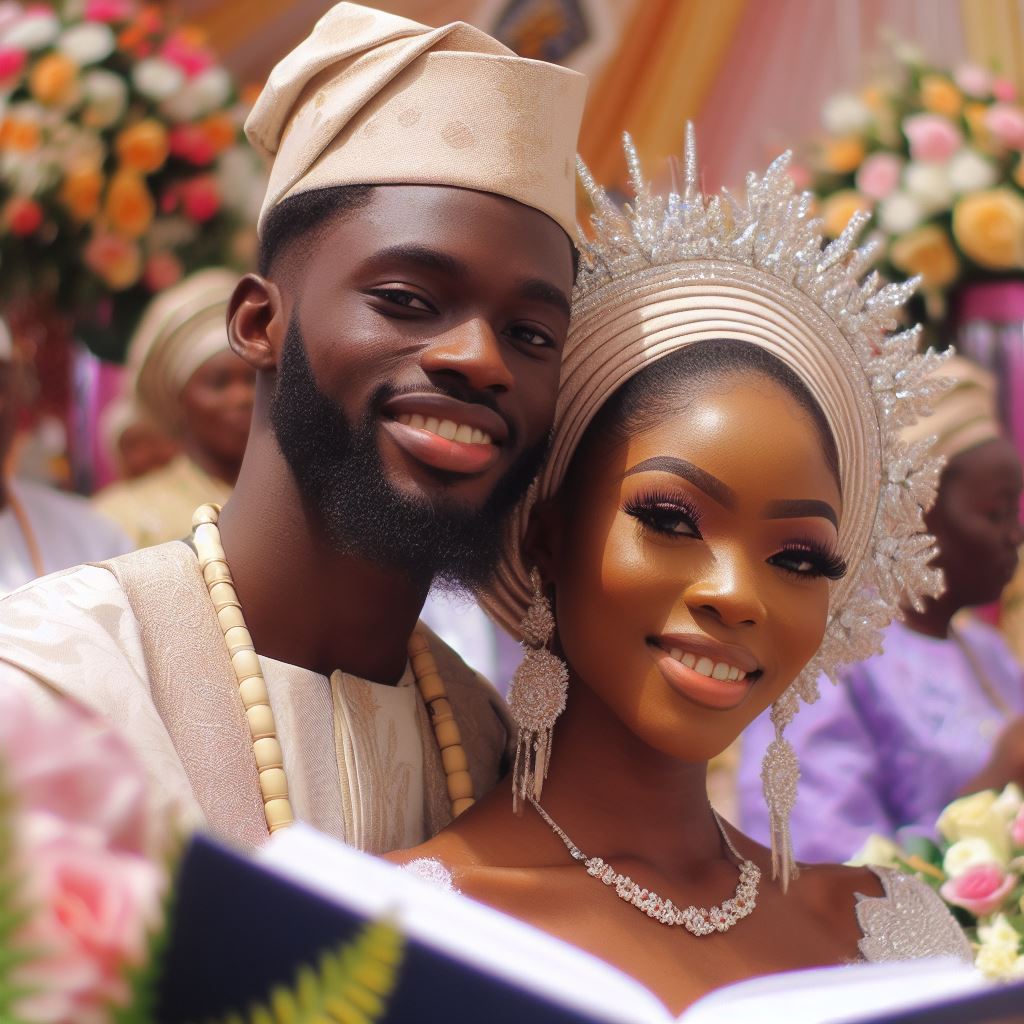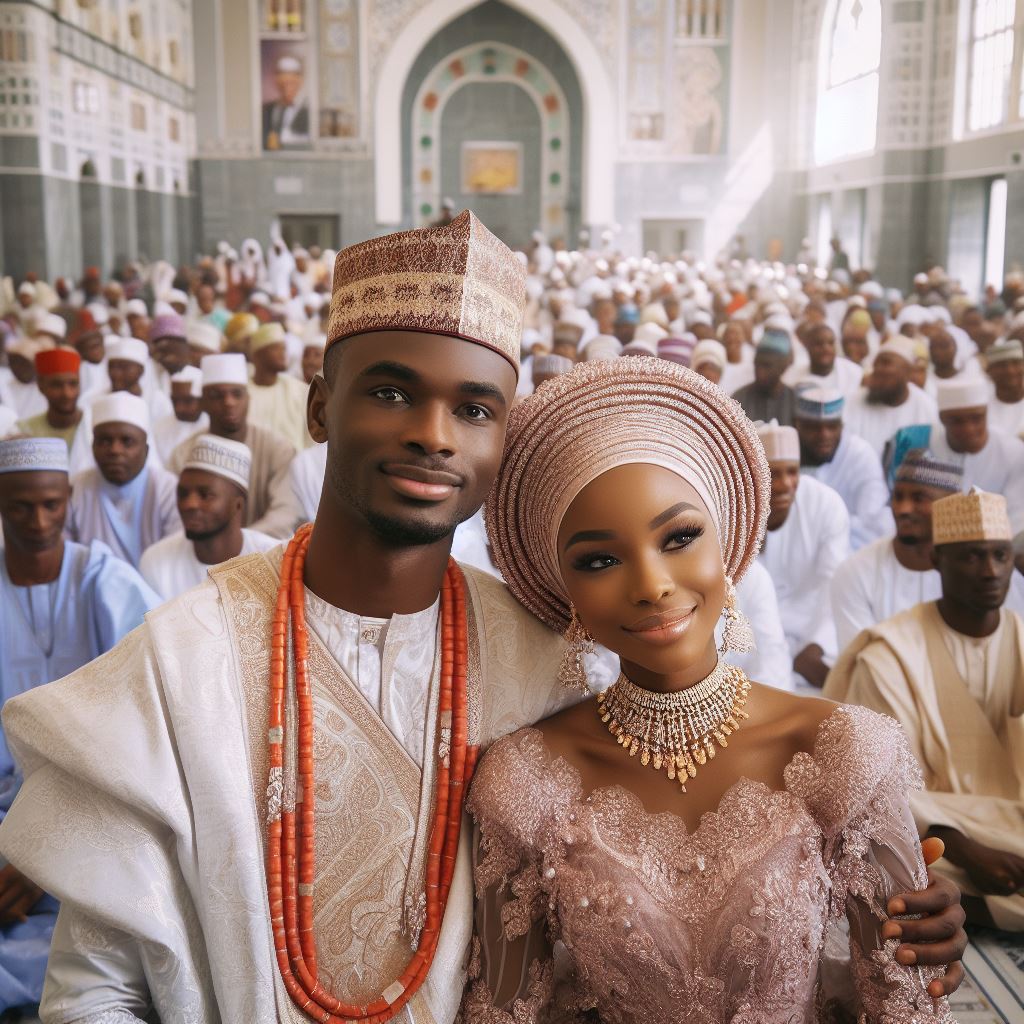Introduction
Nigeria, known for its rich cultural heritage, places immense importance on the institution of marriage.
Nigerian authors have played a significant role in shaping modern perspectives on marriage.
Through their literary works, they explore various aspects of marital life, highlighting the challenges, expectations, and cultural nuances.
Marriage is a fundamental aspect of Nigerian culture, symbolizing unity, procreation, and societal stability.
It is viewed as a sacred bond between a man and a woman, with the primary purpose of building a family and continuing the lineage.
Nigerian literature reflects this significance, delving into the complexities that come with this institution.
Nigerian authors have used their voices to challenge traditional norms and shed light on the evolving dynamics of marriage in modern society.
They explore themes like gender roles, polygamy, love, infidelity, and the impact of social and economic factors on marital relationships.
Through their storytelling, they aim to provoke thought, create dialogue, and bring about change in societal attitudes towards marriage.
Furthermore, these authors offer diverse perspectives on marriage, reflecting the multicultural and multiethnic nature of Nigeria.
They address the intersection of tradition and modernity, tackling issues of arranged marriages, marital abuse, and the quest for personal fulfillment within the confines of a culturally-rooted institution.
In fact, Nigerian authors have significantly influenced contemporary views on marriage through their literary works.
By addressing societal norms, highlighting societal challenges, and offering alternative narratives, they contribute to a more nuanced understanding of this age-old institution.
Their stories continue to shape perceptions and provoke conversations that can lead to positive changes within Nigerian society.
Early Nigerian Authors and their Influence on Marriage
Prominent Nigerian authors have tackled marital themes in their works, shedding light on marriage complexities and expectations.
- Chinua Achebe’s “Things Fall Apart” delves into marriage roles and consequences, offering insights into Nigerian society.
- Amos Tutuola’s “The Palm-Wine Drinkard” illustrates traditional Nigerian perspectives on love and marriage.
- Flora Nwapa challenges societal marriage expectations for women in “Efuru,” advocating for individual choices.
- Wole Soyinka critiques traditional marriage institutions in “The Interpreters,” exploring love, infidelity, and societal norms.
These authors’ impactful writings mirror Nigerian communities, prompting critical examinations of marriage, encouraging readers to question norms, and advocating for individual agency in marital choices.
Their influence continues, shaping contemporary views on marriage in modern Nigeria.
Read: Online vs. In-Person: Which Counseling Approach Suits You?
Contemporary Nigerian Authors and their Perspectives on Marriage
Contemporary Nigerian authors shape modern marriage views, challenging tradition and addressing pertinent issues like gender roles, abuse, and infidelity.
- Chimamanda Ngozi Adichie explores love, race, and marriage in “Americanah,” prompting reflection on societal expectations.
- Ayobami Adebayo’s “Stay with Me” challenges gender roles and cultural marriage pressures.
- Lola Shoneyin addresses domestic abuse in “The Secret Lives of Baba Segi’s Wives,” urging reevaluation of power dynamics.
- Nnedi Okorafor’s “Who Fears Death” delves into marriage and infidelity, questioning societal expectations and personal choices.
These authors encourage critical examination of beliefs and foster discussions for a nuanced understanding of modern marriage.
Read: Balancing Tradition and Modern Views on Marriage in Nigeria
Popular Works by Nigerian Authors that Address Marriage
In recent years, Nigerian authors have produced several remarkable novels and stories that delve into the intricacies of marriage in the country.
These works have garnered recognition for their portrayal of marriage in Nigeria, shedding light on various aspects of marital relationships and challenging societal perceptions.
“Americanah” by Chimamanda Ngozi Adichie
Adichie’s critically acclaimed novel “Americanah” provides a profound exploration of cross-cultural experiences and the impact they have on love and relationships.
The protagonist, Ifemelu, navigates the complexities of marriage and identity in both Nigeria and the United States, offering readers a fresh perspective on modern relationships.
“The Secret Lives of Baba Segi’s Wives” by Lola Shoneyin
Shoneyin’s debut novel takes readers into the polygamous household of Baba Segi, a wealthy Nigerian man with four wives.
Through the eyes of each wife, Shoneyin reveals the complex dynamics, power struggles, and intimate secrets within the marriage.
This thought-provoking narrative challenges traditional views on polygamy and highlights the strength and agency of women.
“Stay with Me” by Ayobami Adebayo
Adebayo’s “Stay with Me” is a captivating tale of love, sacrifice, and the societal pressures faced by a Nigerian couple, Yejide and Akin, to conceive a child.
Set against a backdrop of political turmoil in the 1980s, this novel showcases the challenges and deep-rooted beliefs that can strain a marriage, while shedding light on the significance of motherhood in Nigerian society.
“The Joys of Motherhood” by Buchi Emecheta
Nigerian authors like Emecheta have depicted marital challenges, transforming societal views on marriage through their impactful works.
- Emecheta’s “The Joys of Motherhood” portrays Nnu Ego’s struggles, highlighting societal pressures on women.
- These novels challenge traditional beliefs, fostering empathy and deeper understanding of marital complexities.
- They initiate conversations on gender roles, power dynamics, and societal expectations within marriage.
- These literary works shed light on women’s challenges, especially in polygamous setups, impacting mental well-being.
- Authors explore cultural factors affecting marriage, prompting readers to question prevailing norms and beliefs.
- Nigerian writers create space for dialogue, encouraging introspection and reevaluation of societal perceptions.
Basically, Nigerian authors shape modern marriage views, challenging norms and fostering empathy through powerful storytelling.
Read: Understanding ‘Marriage by Ordinance’ in Nigeria: A Primer

The Role of Nigerian Authors in Promoting Dialogue about Marriage
In Nigerian literature, authors play a significant role in shaping modern views on marriage and facilitating conversations about it.
Through their works, they break societal taboos and initiate discussions about sensitive topics related to marriage.
Here are some ways Nigerian authors contribute to the dialogue.
Facilitating Conversations
- Nigerian authors use their literature to initiate conversations about marriage and its various aspects.
- They tackle important issues such as gender roles, love, infidelity, divorce, and polygamy, providing different perspectives.
- By presenting multidimensional characters and plotlines, authors encourage readers to engage in meaningful discussions.
Breaking Societal Taboos
- Nigerian authors challenge societal norms and traditions surrounding marriage by addressing taboo topics.
- They shed light on sensitive issues like domestic violence, child marriage, and marital rape.
- Through their literature, authors confront these taboos head-on, urging readers to confront and question them.
Initiating Discussions about Sensitive Topics
- Nigerian authors use their art to start conversations about sensitive aspects of marriage often ignored in mainstream society.
- They delve into the intricacies of arranged marriages, the pressure to conform to societal expectations, and the struggle for individual freedom.
- By addressing these subjects, authors create awareness and encourage readers to critically examine existing societal norms.
Nigerian authors have made remarkable efforts to bring these topics into the literary spotlight, recognizing their significance in shaping modern views on marriage.
Chimamanda Ngozi Adichie
- Adichie’s novel “Americanah” explores love, race, and cultural differences within a marriage.
- She challenges gender roles with her strong female characters who defy societal expectations.
- Adichie’s work initiates discussions about interracial marriages and colonial legacies.
Buchi Emecheta
- Emecheta’s “The Joys of Motherhood” discusses the challenges faced by women in a patriarchal society.
- She explores the effects of polygamy, fertility struggles, and societal pressures on marriage.
- Emecheta’s examination of these topics sparks conversations about gender inequality and cultural traditions.
Helon Habila
- Habila’s novel “Measuring Time” explores the effects of child marriage on individuals and communities.
- Through his work, he brings attention to the harmful consequences of this practice on young girls.
- Habila’s portrayal of the emotional turmoil faced by child brides encourages discussions about ending child marriage.
The efforts of Nigerian authors in tackling such sensitive topics have a significant impact on shaping modern views on marriage.
By presenting relatable characters and thought-provoking narratives, they challenge readers to question existing norms and engage in dialogues to bring about positive change.
Read: Marriage by Ordinance vs. Traditional Marriage: What’s Different?
Influence of Nigerian Authors on the Global Stage
Nigerian authors have gained international recognition for their literary works and their portrayal of marriage has had a significant impact on literature worldwide.
These authors have challenged stereotypes and inspired readers across cultures to reconsider their perspectives on marriage.
International Recognition
Nigerian authors such as Chinua Achebe, Chimamanda Ngozi Adichie, and Helon Habila have achieved global recognition for their literary contributions.
Their works have been translated into numerous languages, allowing people from different countries to access and appreciate their perspectives on marriage.
The global recognition of Nigerian authors can be seen in the numerous prestigious literary awards they have received.
Achebe’s novel, “Things Fall Apart,” is one of the most widely read African novels and has been translated into over 50 languages.
Adichie’s “Americanah” won the National Book Critics Circle Award for Fiction, further establishing her international acclaim.
Challenging Stereotypes
Nigerian authors have played a vital role in challenging stereotypes surrounding marriage in literature.
They have depicted the complexities of marital relationships beyond the traditional narratives that often dominate Western literature.
By delving into the intricacies of Nigerian culture, these authors have shattered the notion of a single narrative on marriage.
They explore themes such as polygamy, arranged marriages, and infidelity, providing a nuanced understanding of the institution of marriage that extends beyond common stereotypes.
Inspiring Readers Worldwide
The works of Nigerian authors have inspired readers worldwide to reconsider their perspectives on marriage.
Through their vivid storytelling and authentic portrayal of characters, these authors have evoked empathy and understanding among readers from diverse backgrounds.
Readers are exposed to different cultural norms and relational dynamics through the narratives presented by Nigerian authors.
This exposure often challenges preconceived notions and opens up conversations about marriage that are rich and thought-provoking.
Moreover, Nigerian authors bring fresh and unique perspectives to the global literary stage, offering readers a glimpse into a culture that may be unfamiliar to them.
This exposure to diverse experiences fosters a greater appreciation for the complexities and universalities of marriage across cultures.
Nigerian authors have made a significant impact on the portrayal of marriage in literature worldwide.
Their international recognition, coupled with their ability to challenge stereotypes and inspire readers, has reshaped modern views on marriage.
Through the power of storytelling, these authors have reminded us of the multiplicity of narratives surrounding marriage, urging readers to embrace the beauty and diversity of marital relationships.
Their contributions have enriched the literary landscape and have undoubtedly influenced the way we perceive and understand the institution of marriage on a global scale.
Conclusion
Nigerian authors have significantly influenced the shaping of modern views on marriage in Nigeria.
Their works have presented a diverse range of perspectives that challenge traditional norms and offer fresh insights.
Through their writings, Nigerian authors have explored themes such as gender roles, patriarchy, and the evolving dynamics of relationships.
By depicting complex characters and societal expectations, they have sparked critical dialogue on marriage.
Chimamanda Ngozi Adichie’s novel “Americanah” provides a thought-provoking critique of the institution of marriage, emphasizing the need for individual freedom and self-discovery.
Her portrayal of Ifemelu and Obinze’s tumultuous relationship challenges the idea of a “happily ever after.”
Buchi Emecheta’s “The Joys of Motherhood” sheds light on the pressures faced by Nigerian women to conform to societal expectations of marriage and motherhood.
Her protagonist, Nnu Ego, navigates the complexities of polygamy and the sacrifices that women often make for their families.
These Nigerian authors have played a vital role in fostering critical dialogue about marriage, encouraging readers to question traditional norms and explore alternative narratives.
Their works have helped shape modern views on marriage by highlighting the importance of individual agency, equality, and open communication.
Literature continues to be an essential tool in challenging societal norms and broadening perspectives. It allows readers to empathize with diverse experiences and encourages them to analyze their own beliefs and values.
As Nigeria continues to evolve socially and culturally, the influence of Nigerian authors on shaping modern views on marriage will remain significant.
Their works inspire readers to confront and reevaluate traditional practices and promote a more inclusive and egalitarian understanding of marriage.
Literature serves as a powerful vehicle for change, fostering critical dialogue that contributes to a more progressive and nuanced understanding of marriage in Nigerian society.




